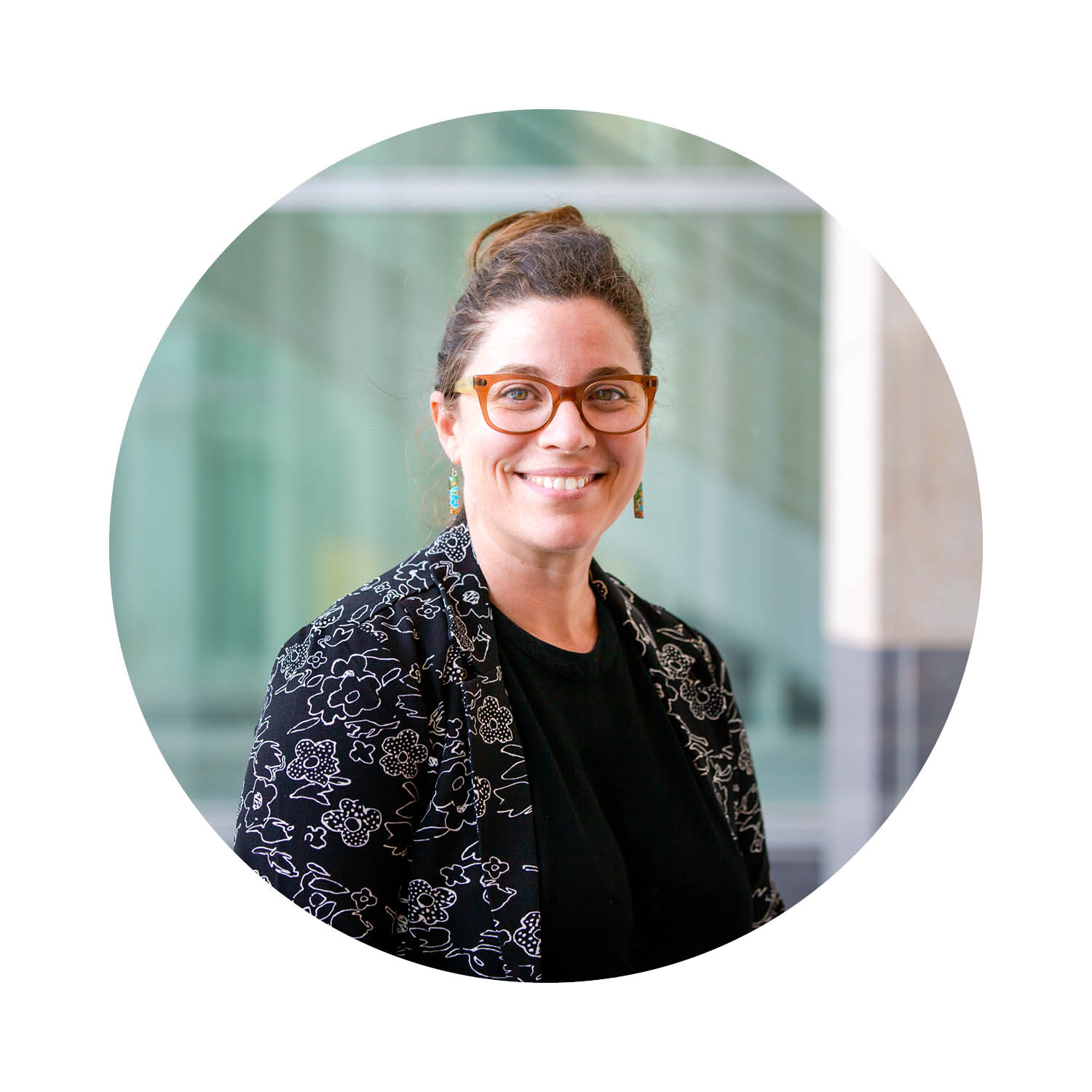Climate & Health
- Climate and Health Home
- About Us
- Climate and Health in Minnesota
- Agriculture and Food Security
- Air Quality
- Diseases Spread by Ticks and Mosquitoes
- Extreme Heat
- Planning for and Responding to Extreme Heat
- Water Changes
- Wellbeing
Resources
- Discussing Climate Change with Patients
- Minnesota Outdoor Air Quality Guidance for Schools and Child Care
- Climate and Health Stories
- Planning Tools and Publications
- Trainings and Resources
Related Topics
Environmental Health Division
Climate and Health Stories: Jessie Carr
Meet Jessie Carr.

Jessie is an environmental epidemiologist supervisor with the Minnesota Environmental Public Health Tracking and Biomonitoring programs. Jessie and her teams help gather, analyze, and share environmental health data with partners at MDH and across Minnesota to reduce environmental exposures and protect public health.
What most excites you about your work?
Jessie: We get to work on public health surveillance from very targeted community studies all the way up to state-level surveillance of trends across space and time. What I like about that work, looking at patterns in various health outcomes and exposures, is that it often leads to more questions. It provides a lot of opportunities to work with partners to better understand what’s driving differences in health, identify what we have done — and can do — to address health disparities, and clarify what emerging trends we can prioritize and work on. And lucky for me, I like data!
How is your program preparing for and/or responding to climate changes in Minnesota?
Jessie: Through our data and partners we’re trying to develop indicators that can help others understand how climate change is already impacting Minnesota. For example, we keep track of climate-related indicators like pollen and air quality alert days over time, as well as some health outcomes that are sensitive to climate change, like emergency room visits from heat-related illness. These data and other data that we analyze annually can help others better understand what communities might be more vulnerable to the impacts of climate change.
Why do you think it’s important for MDH to be working on this issue?
Jessie: I think every governmental agency should be working on climate change because it’s going to touch every aspect of our society, our economy, our landscape — all of these things as public servants that we’re trying to protect. We know that climate change is going to exacerbate existing disparities; so at MDH specifically, it’s important for our work to center on addressing health inequities. We can’t address disparities if we’re not active about equitable climate adaptation and mitigation.
How has climate change impacted your life personally?
Jessie: Climate change activism is how I found my entry point into public health. At that time it was frustrating because health impacts weren’t part of the framework; people were only talking about the impacts to our economy or ethereal impacts to future generations. I went back to school to get my Master of Public Health and was able to take part in the beginning of the Climate and Health Program at Columbia University. The activism early on and career focus on climate and health ended up pushing me towards the health disparities work that I focus on today.
I feel a lot of compassion for those in our state and around the world who are dealing with the direct impacts of climate change. I haven’t felt immediate impacts yet, but since having my son earlier this year, I’ve thought about climate change so much more. I think about the world he’s inheriting and what he’ll live with as he grows up. It makes the immediacy of this issue more apparent for me and makes me want to do more.
How has integrating climate change into your work allowed you to collaborate with programs you normally wouldn’t?
Jessie: We recently partnered with the Wisconsin Department of Health Services on a heat vulnerability project, and it’s a great example of how climate and health issues can provide a platform for regional collaboration. Minnesota and Wisconsin share similarities in terms of population, climate, and heat-related illness, so we were able to pool our data to better understand trends and patterns. The Governor of Wisconsin even commented about the work on social media, which was nice recognition of the benefits that regional collaboration can bring.
What do you think are the biggest opportunities for climate and health moving forward?
Jessie: I think there’s opportunities in recognizing the climate and health co-benefits of strategies like reducing air pollution. Climate adaptation work is a fun opportunity because you explicitly have to take an asset-based lens in thinking about resilience, not just risk factors. I think we should learn from that approach and apply it to other facets of public health. Lifting up our strengths and assets provides us with a better opportunity to grow and build resilience.